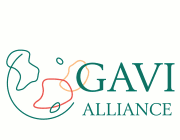 |
|
|
Fifth GAVI Board Meeting, 21-22 June 2001, London, England June 2001 Status report on the Fund Discussion It is essential to have a long-term perspective concerning the Vaccine Fund – beyond five years – so that resources are in place to help finance future vaccines, such as pneumococcal conjugate, as they become available. We must continue to monitor the balance between funding for purchase of vaccines and health services infrastructure. As the Vaccine Fund receives new resources, the highest priority should be to increase support to immunization services in countries. One proposal is to provide countries with more than one year of share payments for each additional child reached; the Fund was requested to conduct further calculations to assess financial implications of this strategy. Funding for vaccine research and development should come primarily from partners, but resources from a third sub-account of the Vaccine Fund may be appropriate to use to fill gaps, at some point in the future, in order to support the GAVI priority R&D projects (three vaccines and up to three technologies). Board members emphasized the Fund policy not to replace, or displace, funding from other sources. In this regard, it will be useful to scale up activities on a database to analyse resource flows in immunization, as proposed by the Financing Task Force. This work should be linked to ongoing work being done at WHO and the World Bank on national health accounts. The Fund was requested to present its fundraising targets and plans to the GAVI Board at its next meeting. DECISIONS The Board:
* Decision is retroactive; countries that were approved in past rounds may request new support at the time of their inception reports.
|
|
|
|
Copyright © GAVI |